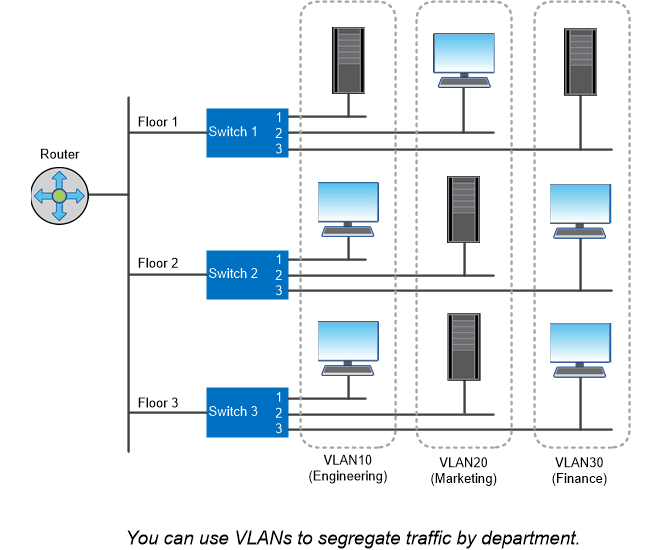Logical ports
 Suggest changes
Suggest changes


In addition to the physical ports provided on each node, you can use logical ports to manage network traffic. Logical ports are interface groups or VLANs.
Interface groups
Interface groups combine multiple physical ports into a single logical “trunk port”. You might want to create an interface group consisting of ports from NICs in different PCI slots to ensure against a slot failure bringing down business-critical traffic.
An interface group can be single-mode, multimode, or dynamic multimode. Each mode offers differing levels of fault tolerance. You can use either type of multimode interface group to load-balance network traffic.
VLANs
VLANs separate traffic from a network port (which could be an interface group) into logical segments defined on a switch port basis, rather than on physical boundaries. The end-stations belonging to a VLAN are related by function or application.
You might group end-stations by department, such as Engineering and Marketing, or by project, such as release1 and release2. Because physical proximity of the end-stations is irrelevant in a VLAN, the end-stations can be geographically remote.



